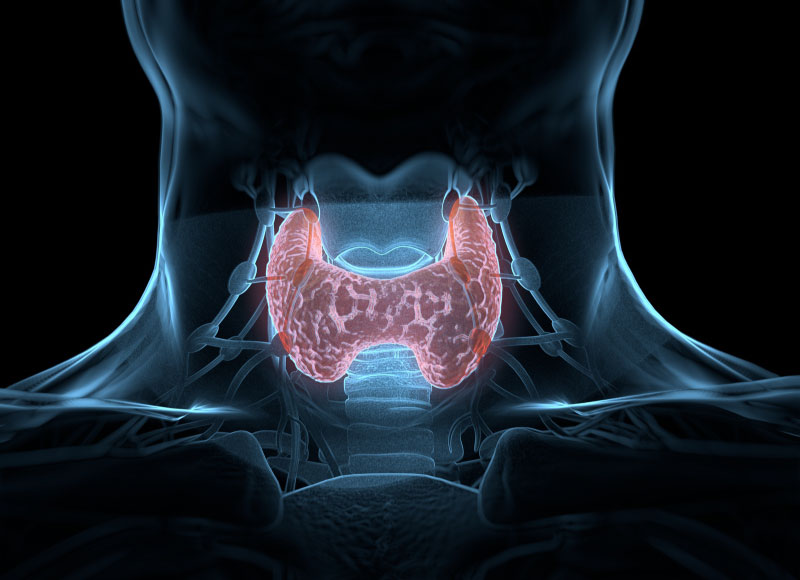

A tireóide é uma glândula localizada no pescoço, na frente da traquéia, que é responsável pela produção de hormônios que são essenciais para o metabolismo. Esses hormônios são chamados de T3 e T4 e são responsáveis por aumentar a taxa funcional de vários tecidos e órgãos. Além disso, a tireóide produz um hormônio chamado calcitonina, que é muito importante para o equilíbrio do metabolismo do cálcio.

O hipertireoidismo é caracterizado excesso de hormônios tireoidianos. Pode ser causada por uma doença auto-imune ou nódulos produtores de hormônio ...

O hipotireoidismo ocorre quando há falta de hormônio tireoidiano na circulação. Pode ocorrer por doença auto-imune, infecções, defeitos na produção hormonal ...

A maioria deles são benignos e não merecem grandes preocupações, porém o acompanhamento com especialista deve ser constante ...
| Cookie | Duração | Descrição |
|---|---|---|
| cookielawinfo-checbox-analytics | 11 months | This cookie is set by GDPR Cookie Consent plugin. The cookie is used to store the user consent for the cookies in the category "Analytics". |
| cookielawinfo-checbox-functional | 11 months | The cookie is set by GDPR cookie consent to record the user consent for the cookies in the category "Functional". |
| cookielawinfo-checbox-others | 11 months | This cookie is set by GDPR Cookie Consent plugin. The cookie is used to store the user consent for the cookies in the category "Other. |
| cookielawinfo-checkbox-necessary | 11 months | This cookie is set by GDPR Cookie Consent plugin. The cookies is used to store the user consent for the cookies in the category "Necessary". |
| cookielawinfo-checkbox-performance | 11 months | This cookie is set by GDPR Cookie Consent plugin. The cookie is used to store the user consent for the cookies in the category "Performance". |
| viewed_cookie_policy | 11 months | The cookie is set by the GDPR Cookie Consent plugin and is used to store whether or not user has consented to the use of cookies. It does not store any personal data. |
